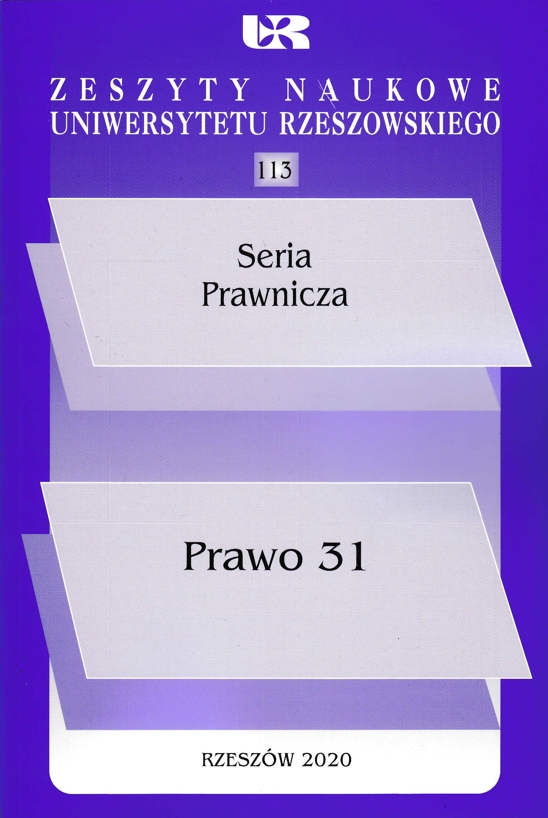Police cooperation with the enforcement authorities in the enforcement proceedings in administration
DOI:
https://doi.org/10.15584/znurprawo.2020.31.3Keywords:
cooperation, enforcement authorities, administrative enforcement proceedings, Police, help, assistanceAbstract
On the basis of the science of administrative law and administration, praxeology or organization theory, nowadays, there is a view, that administrative entities should cooperate with each other while performing public tasks. The cooperation of public administration entities as a principle of law, was reflected in the Polish Constitution of 1997 and its content was developed and specified in legislation. The enforcement authorities are entities that enter in different legal relations with participants of the administrative enforcement during their proceedings. At the same time, they are the obligatory participants of the enforcement relationship. The aim of the administrative enforcement proceedings is to compel the obligated entities to meet their obligations which are subject to the administrative enforcement. As the enforcement authorities enter into different legal relations with participants of the administrative enforcement, specific legal instruments were conferred on them, including providing assistance or cooperation. These serve to achieve the aim of the proceedings. Among others, the enforcement authorities cooperate with the police, so that the legal instruments they were given, would be effective. The aim of this article is to outline the essence of the concept of cooperation as a general principle of administrative law and to indicate legal instruments on which the enforcement authorities can cooperate with the police, so that the aim of their proceedings could be achieved. Moreover, the article refers to the procedure for using the legal instruments conferred to the enforcement authorities, i.e. providing assistance and cooperation. It also describes the behaviour of a police officer while being designated for assistance or cooperation.
Downloads
Downloads
Published
How to Cite
Issue
Section
License
Copyright (c) 2020 Acta Iuridica Resoviensia (formelry: The Scientific Journal of the University of Rzeszow, Law Series)

This work is licensed under a Creative Commons Attribution-NonCommercial-NoDerivatives 4.0 International License.

